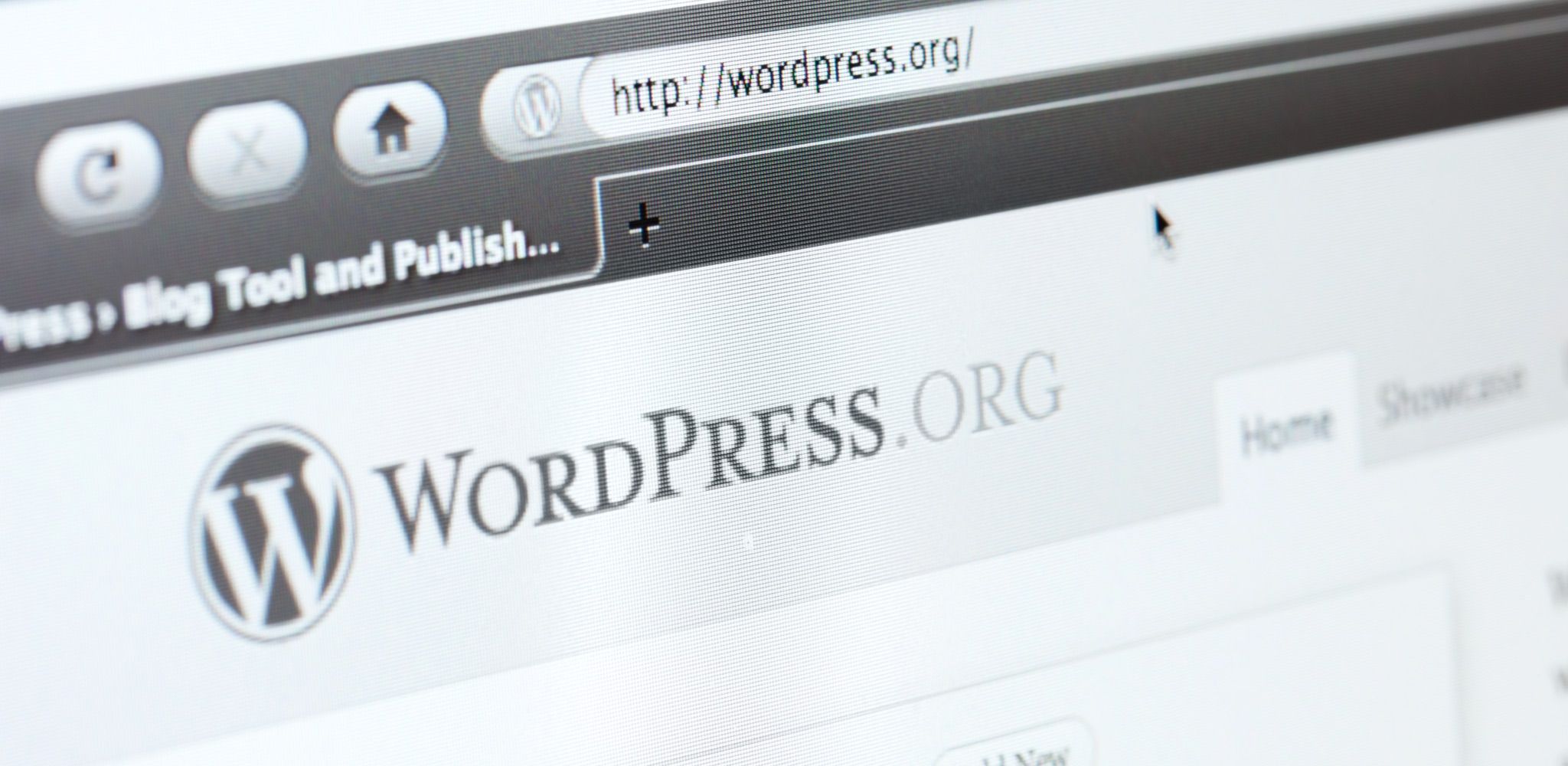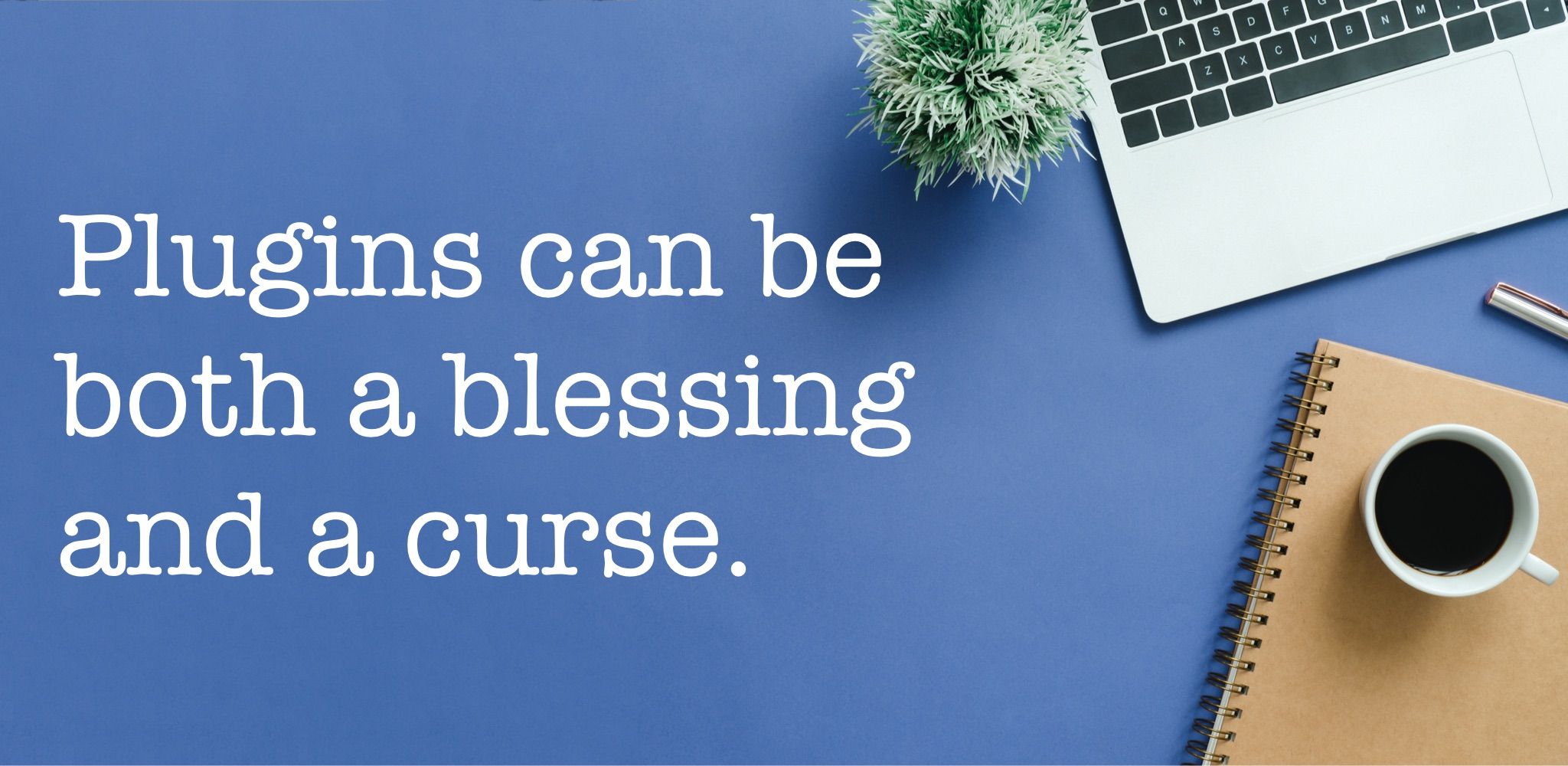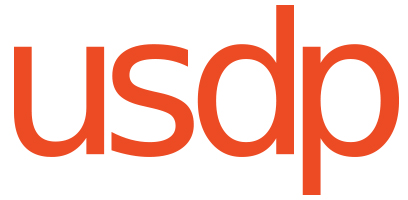So you’re building a WordPress website, and you want it to do more. The core WordPress platform offers key features and functionality that you need to build a simple website with text, graphics, and maybe a video or two. But what happens when you want to add something complex, like a contact form, an event calendar, or even eCommerce?
With a WordPress website, there are generally two options: you can either hire a web developer or install a WordPress plugin. A plugin is a piece of code that adds new functionality to your website, and it comes pre-developed, ready to install with the click of a button.

For many people, reaching for a WordPress plugin can be a knee-jerk response when a functionality need arises. But as with many knee-jerk responses, it might not be the best choice in all scenarios. Try thinking through the following pros and cons of WordPress plugins before making a decision for your website:
PRO: There’s probably a plugin for that
WordPress is open-source, meaning anyone can build plugins that extend WordPress’s core functionality. The laws of supply and demand govern plugin development, so if you have a need for something specific, odds are someone has already built a plugin for it.
CON: Not all plugins are created equal
The fact that anyone can build (or author) WordPress plugins is a double-edged sword. Just because someone has built a plugin does not mean that they’ve built it well. If you don’t properly vet the plugin you’re installing, you could be opening your site to poor performance and unwanted vulnerabilities.

CON: Plugins don’t always play nice
The more plugins you’re using, the more opportunity you have for plugin conflicts, which is what happens when the code for a plugin contradicts another piece of code in your site. Plugin conflicts can lead to hours of troubleshooting while you try to track down the cause of the issue.
PRO: Plugins are inexpensive
Most WordPress plugins are available for a very economical price, and many are even free. This can be very appealing depending on your situation, and for many people, this is the factor that tips their decision toward using a plugin.
CON: You may end up paying more for your plugins over time
Just as a chef needs sharp knives, an engineer needs precise measurement tools, and a musician needs a superior instrument, your business needs a website that performs. If a poorly crafted plugin breaks or underperforms, you will lose business trying to correct the situation.
PRO: Good plugins have lots of options
Most well-maintained plugins come with a full set of features. In addition to solving your problem, they usually include secondary functionality that you didn’t know you needed. This can be useful and even inspiring in certain scenarios.

CON: Too many options cause site bloat
On the flip side, sometimes a full set of features is too much. More often than not, a plugin gives you everything, when you only need one thing. Too much functionality, or BLOAT, can negatively impact your site’s performance and speed.
PRO: Well-maintained plugins make updates easy
WordPress continually updates its platform with improvements and bug fixes. As these updates roll out, it is the responsibility of each plugin author to update their plugins and keep pace. Good plugin authors will do this seamlessly, giving you peace of mind that your site will transition smoothly between updates.
CON: Some plugin updates can be a bear
The more plugins you have, the more plugins you have to update. And if they’re not well maintained by their author, every WordPress core update could turn into a nightmare of troubleshooting and debugging.

Conclusion
WordPress plugins can be both a blessing and a curse. When weighing the pros and cons of WordPress plugins, ask yourself the following questions:
- How does this plugin meet my need? Does it do more than I need it to do?
- How could this plugin affect my site’s performance and speed?
- Who authored the plugin? Did they do a good job?
- How difficult will the plugin be to maintain?
If you have clear and reassuring answers to these questions, then a plugin may be the right choice for you. If you have difficulty answering these questions, it’s time to talk to a trusted partner.

